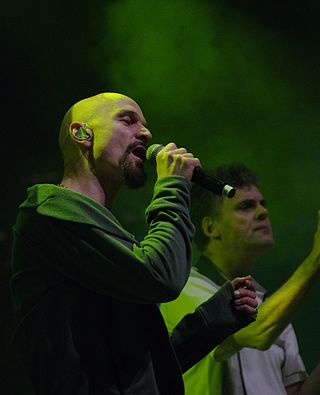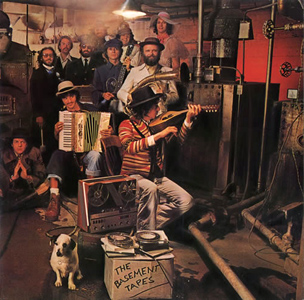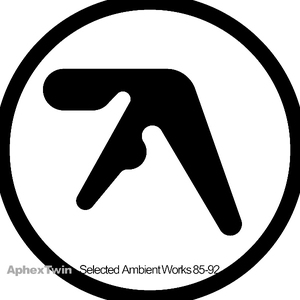
Thomas Alan Waits is an American musician, composer, songwriter, and actor. His lyrics often focus on the underbelly of society and are delivered in his trademark deep, gravelly voice. He worked primarily in jazz during the 1970s, but his music since the 1980s has reflected greater influence from blues, rock, vaudeville, and experimental genres.

The Band was a Canadian-American rock band formed in Toronto, Ontario, in 1967. It consisted of Canadians Rick Danko, Garth Hudson, Richard Manuel, Robbie Robertson, and American Levon Helm. The Band combined elements of Americana, folk, rock, jazz, country, and R&B, influencing musicians such as George Harrison, Elton John, the Grateful Dead, Eric Clapton and Wilco.

Music from Big Pink is the debut studio album by the Band. Released in 1968, it employs a distinctive blend of country, rock, folk, classical, R&B, blues, and soul. The music was composed partly in "Big Pink", a house shared by bassist/singer Rick Danko, pianist/singer Richard Manuel and organist Garth Hudson in West Saugerties, New York. The album itself was recorded in studios in New York and Los Angeles in 1968, and followed the band's backing of Bob Dylan on his 1966 tour and time spent together in upstate New York recording material that was officially released in 1975 as The Basement Tapes, also with Dylan. The cover artwork is a painting by Dylan.

The Masterplan is a compilation album by English rock band Oasis. It was released on 2 November 1998 by Creation Records, the band's final release through the label. It comprises B-sides which never made it onto an album up to that point. Originally intended for release only in areas such as the United States and Japan, where the tracks were previously only available on expensive European-import singles, The Masterplan reached number 2 in the UK, where it initially went platinum, and number 51 in the United States. However, it did reach the Top 20 in various charts around the world, going on to sell 3 million copies. It has since been certified triple platinum in the UK. Four songs from the album appear on the 2006 compilation album Stop the Clocks.

James are an English rock band from Manchester, who were formed in 1982. They had popularity throughout the 1990s, with four top 10s on the UK Singles Chart and nine top 10s on the UK Albums Chart. The band's best-known singles include "Come Home", "Sit Down", "She's a Star" and "Laid", which also became a hit on American college radio.

October is the second studio album by Irish rock band U2. It was released on 12 October 1981 by Island Records, and was produced by Steve Lillywhite. The album was lyrically inspired by the memberships of Bono, the Edge, and Larry Mullen Jr. in a Christian group called the Shalom Fellowship, and consequently it contains spiritual and religious themes. Their involvement with Shalom Fellowship led them to question the relationship between the Christian faith and the "rock and roll" lifestyle, and threatened to break up the band.

Raise! is the eleventh studio album by the American band Earth, Wind & Fire, released on November 14, 1981, by ARC/Columbia Records. The album spent 11 weeks atop the Billboard Top R&B albums chart and peaked at No. 5 on the Billboard 200 chart. Raise! has been certified Platinum in the US by the RIAA, Gold in the UK by the BPI and Gold in Canada by Music Canada.

"Communication Breakdown" is a song by the English rock band Led Zeppelin, from their 1969 self-titled debut album. It was also used as the B-side of the group's first single in the US, "Good Times Bad Times". A promotional video was released, with the group miming to the recording, which is included on the Led Zeppelin DVD (2003).

The Blue Mask is the eleventh solo studio album by American rock musician Lou Reed, released on February 23, 1982 by RCA Records. Reed had returned to the label after having left Arista Records. The album was released around Reed's 40th birthday, and covers topics of marriage and settling down, alongside themes of violence, paranoia, and alcoholism.

"Stop Whispering" is a song by the English alternative rock band Radiohead, included on their debut album, Pablo Honey (1993). It was released as a single in the US in October 1993. Radiohead rerecorded it for the single release, as they were unsatisfied with the album version.

Honeycomb is the tenth studio album by American alternative rock musician Frank Black, released in July 2005 on Back Porch Records. His first original solo work since 1996's The Cult of Ray, Honeycomb was recorded in Nashville, and features notable local session musicians, such as Steve Cropper and ex-Presley guitarist Reggie Young.
Barney Hoskyns is a British music critic and editorial director of the online music journalism archive Rock's Backpages.

The Basement Tapes is the sixteenth album by American singer-songwriter Bob Dylan and his second with the Band. It was released on June 26, 1975, by Columbia Records. Two-thirds of the album's 24 tracks feature Dylan on lead vocals backed by the Band, and were recorded in 1967, eight years before the album's release, in the lapse between the recording and subsequent release of Blonde on Blonde and John Wesley Harding, during sessions that began at Dylan's house in Woodstock, New York, then moved to the basement of Big Pink. While most of these had appeared on bootleg albums, The Basement Tapes marked their first official release. The remaining eight songs, all previously unavailable, feature the Band without Dylan and were recorded between 1967 and 1975.

"The Other Side of Summer" is a single from Elvis Costello's 1991 album Mighty Like A Rose, written by Costello. The song was co-produced by Costello, Mitchell Froom and Kevin Killen. A Beach Boys pastiche, the song featured a Wall of Sound production. The single reached number 43 in the UK Singles Chart and charted in Canada and Australia. It also reached number 1 on the US Modern Rock Tracks chart and number 40 on the Album Rock Tracks chart.

"Country Road" is a song written and performed by American singer-songwriter James Taylor, released in February 1971 by Warner Bros. Records. It is the third single from Taylor's second studio album, Sweet Baby James. "Country Road" is also featured on James Taylor's 1976 Greatest Hits record. The song has been played at most of his concerts since 1970. Randy Meisner, later of the Eagles, played bass on the album version.

"Stage Fright" is the title track of the Band's third album, Stage Fright. It features Rick Danko on lead vocals and was written by Robbie Robertson. According to author Barney Hoskyns, Robertson originally intended it to be sung by Richard Manuel but it became clear that the song was better suited to Danko's "nervous, tremulous voice."

Selected Ambient Works 85–92 is the debut studio album by Aphex Twin, the pseudonym of British electronic musician Richard D. James. It was released on 9 November 1992 through Apollo Records, a subsidiary of Belgian label R&S Records. The album consists of ambient techno tracks recorded onto cassette reputedly dating as far back as 1985, when James was thirteen to fourteen years old. Upon release it received widespread acclaim. It entered the Dance Albums Chart at No. 6 on 26 December 1992.

"The Shape I'm In" is a song by The Band, first released on their 1970 album Stage Fright. It was written by Robbie Robertson, who did little to disguise the fact that the song's sense of dread and dissolution was about Richard Manuel, the song's principal singer. It became a regular feature in their concert repertoire, appearing on their live albums Rock of Ages, Before the Flood, and The Last Waltz. Author Neil Minturn described the song as "straightforward rock." Along with "The Weight," it is one of the Band's songs most performed by other artists. It has been recorded or performed by Bo Diddley, The Good Brothers, The Mekons, The Pointer Sisters, She & Him, Marty Stuart and Nathaniel Rateliff and the Night Sweats.
"Sleeping" is a song by The Band, first released on their 1970 album Stage Fright. It was also released as the B-side to the "Stage Fright" single. It was co-written by Robbie Robertson and Richard Manuel. This and “Just Another Whistle Stop” are the only two songs Manuel receives credit for on the album. Music critic Barney Hoskyns rates it as "one of Richard [Manuel's] liveliest performances" and "one of The Band's most intricate arrangements." The Band never featured the song on a live album.
"The Unfaithful Servant" or "Unfaithful Servant" is a song written by Robbie Robertson that was first released by The Band on their 1969 album The Band. It was also released as the B-side of the group's "Rag Mama Rag" single. It has also appeared on several of the Band's live and compilation albums.

















